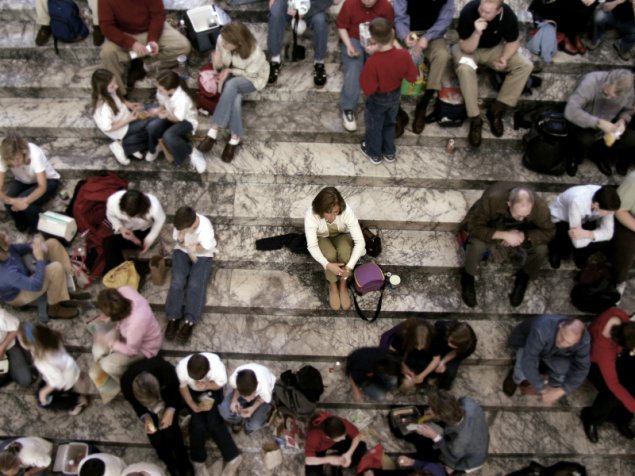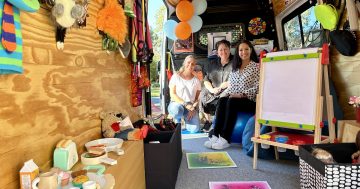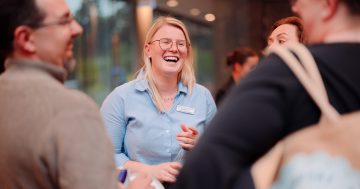
Nearly one in ten Canberrans feel lonely right now. Are you one of them?
If you’re not lonely at this very moment, there’s a three in ten chance that you’ll feel lonely at some point over the next decade.
Loneliness is defined as when a person feels the interpersonal relationships they want are different from the relationships they think they currently have. It is a subjective and difficult to manage phenomenon.
Young women on low incomes are the single group most likely to feel lonely, but men are more likely to feel lonely overall, peaking in their sixties. Women with kids are more likely to be lonely than their husbands, but when there are no kids the situation is reversed.
Loneliness has a real health impact too, comparable to that caused by high blood pressure, lack of exercise, obesity, or smoking. If you’re older and socially isolated, you use more health and social care services, get admitted to nursing homes earlier and are at increased risk of heart disease, brain deterioration and death.
So far, so depressing. But what can be done? An important part of fixing Canberra’s loneliness problem comes from building stronger psychosocial resources in people through:
- Optimism and self-esteem – how positive a person’s general attitude is towards life and themselves
- Active coping style – if they make the choice to get help, find information and take action when things go wrong
- Mastery – how much a person feels they have control over their life and environment
- Social support – easy access to friends, relatives and other supportive figures
We often fail to recognise how much work that Canberra’s grassroots organisations, clubs, churches, and government programs do to prevent and cure loneliness every single day just through their existence.
These groups make us feel good about ourselves, encourage commitment to ongoing action, help us to feel in control of what we do, and give us quick access to new social support networks. For example:
- ACT Playgroups
An absolutely essential resource for new parents and particularly young mums. You are matched with a group of other locals with similarly aged babies. The forced discipline of getting out of the house with other people in the same situation can be so important. - Men’s sheds
The workshop in men’s sheds offers a place for men who are reluctant to set up social situations for themselves, providing both somewhere to go which is productive. - Taoist Tai Chi
A physically undemanding discipline, the 108-move Tai Chi sequence is about providing a sense of mastery and control in the form of exercise. It is particularly welcoming to older people. - Community gardens
There are nearly 100 community gardens across Canberra that encourage you to meet and talk with your local community. The gardens help curators to develop a better sense of connection with their environment, and a relaxing, low pressure way to learn new skills. - Multicultural groups
There are more than 100 organisations in Canberra that aim to provide people with common cultural interests a place to foster a strong identity, as well as the opportunity to meet and get together.
That hasn’t even touched on the hundreds of MeetUp groups registered in Canberra that get together on just about any interest imaginable. From camping, tennis, meditation, movies, music, self-help, programming, board games, or just a venue for social singles to hang out – there’s definitely more happening nearby than you think.
There’s no shortage of groups out there where people come together to enjoy themselves and support each other. But the challenge remains how best to reach out to those who will never find out about them.
Surely this is something we can do better in the ACT?



















